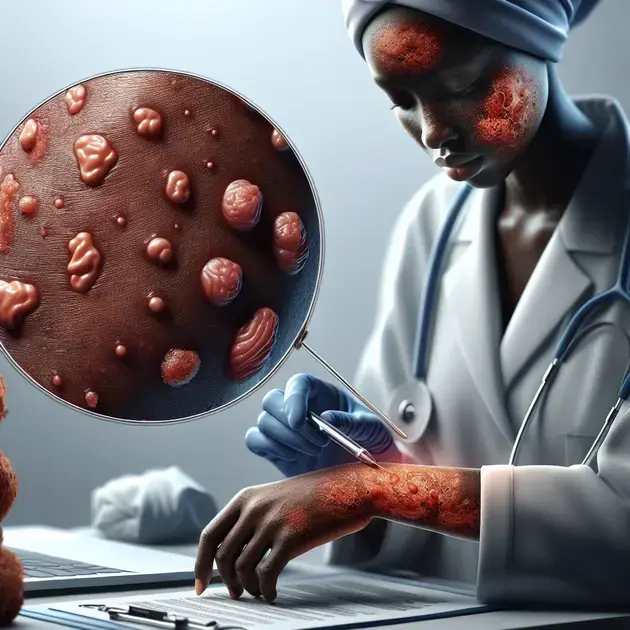Hidradenitis Suppurativa: A Painful Immune Disease
Hidradenitis Suppurativa (HS) is a chronic immune disease that impacts approximately 4% of the worldwide population. This condition leads to the development of painful and recurrent skin lesions, as well as inflammation, mainly in the skin folds. It particularly affects women of African American descent. HS poses significant challenges for those living with it, impacting their quality of life and requiring ongoing management.
The exact cause of HS remains unknown. However, researchers suggest that it originates from a combination of genetic and environmental factors. It is believed that an abnormal immune response triggers the condition, leading to inflammation and the subsequent formation of painful and often infected nodules or abscesses within the skin folds. These lesions can rupture, causing drainage and scarring, and the continuous cycle of lesion formation and healing can result in the development of sinus tracts, further complicating the condition.
HS primarily affects areas of the body with a high density of apocrine glands, such as the underarms, groin, and buttocks. The symptoms can vary in severity, ranging from mild discomfort to debilitating pain. Some common symptoms include painful nodules or abscesses, redness, swelling, and the formation of tunnels or channels beneath the skin. In severe cases, HS can lead to restricted mobility, psychological distress, and a decreased quality of life.
Management of HS involves a multimodal approach, combining pharmacological treatments, surgical interventions, and lifestyle modifications. The goal of treatment is to control inflammation, promote healing, prevent infection, and alleviate pain. Lifestyle changes, such as weight loss, smoking cessation, and maintaining good hygiene practices, can help improve symptoms and reduce the frequency of flare-ups.
Currently, there is no cure for HS, but various treatment options can help manage the condition. Topical and oral antibiotics, anti-inflammatory medications, and immunosuppressants may be prescribed to control symptoms and prevent infections. In severe cases, surgical intervention may be necessary to remove abscesses or affected tissue. Emerging therapies, such as biologic medications that target specific molecules involved in the inflammatory process, show promising results in clinical trials.
In conclusion, Hidradenitis Suppurativa is a debilitating immune disease that affects a significant portion of the global population, with a higher prevalence among women of African American descent. The painful and recurrent nature of HS lesions, along with its impact on daily life, make it crucial to raise awareness about this condition. Ongoing research and advancements in treatment options hold hope for improving the lives of those living with HS and ultimately finding a cure.
